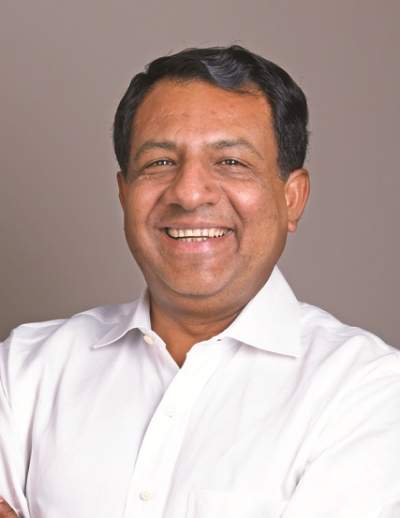India is cruising towards becoming a $5 trillion economy. Indian alcobev industry stalwarts add credence to FICCI’s take on the budget.
Commenting on the Union Budget 2019-20 recently presented by the Finance Minister Ms Nirmala Sitharaman, Mr Sandip Somany, President, FICCI said, “Directionally the budget is good, and it takes forward the plan that was laid out by the government during the Interim budget. There are several positives in the budget, and it provides a set of benefits for most segments of the society. We see a clear action plan for realising the vision of making India a US$ 5 trillion economy over the next few years with a focus on ease of living.”

Anand Kripalu
“A balanced budget that draws from a long-term vision for the country! Through policy reforms to rejuvenate investment, ‘Make in India’ and Ease of Doing Business, as well as measures to tackle the country’s water shortage and climate change, the budget lives up to the government’s vison of a New India that aims at inclusive growth. The acknowledgement of India Inc’s role as the nation’s job and wealth creators is heartening. Operating with the high standards of compliance, in a sector that is in urgent need of regulatory reform, we are delighted at the Government’s vision of ‘Minimum Government Maximum Governance’, which we hope the Centre will encourage States to adopt towards the alcoholic beverages sector,” points out Anand Kripalu, Managing Director and CEO, Diageo India.
The budget maintained its focus on infrastructure development. While the government would continue with its existing major national programmes like Bharatmala, Sagarmala, Rural roads, Udan and Inland waterways scheme, the vision of taking connectivity to the next level through ‘One Nation One Grid’ for electricity and a similar plan for gas grids, water grids, i-ways and regional airports is indeed ambitious and would be transformational in its impact. “FICCI has been advocating the need for such networks and would work with the government on realising this vision. We are also encouraged by the Minister’s focus on promoting public-private partnership for modernisation and upgradation of the nation’s railway infrastructure,” added Mr Somany.
The MSME sector also got its due focus in the budget. Availability of finance and delay in payments are the two key issues faced by MSMEs. The government has attempted to address these through allocation of `350 crore for interest subvention scheme for GST registered MSMEs and creation of a payments platform to enable filing of bills and payment thereof on the platform itself. Also noteworthy is the suggestion to set up a social stock exchange for listing of social enterprises and voluntary organisations. This is expected to open up new avenues for funding for entities working in the social sectors.

Neeraj Kumar
With the Indian economy poised to become a $3 trillion economy in 2019, the Union Budget balanced prudently between focus on enablers for near term growth with a visionary 10 year road map to sustain and scale this growth.
Closer to our category, the announcement to develop 17 iconic world-class tourist sites is good news. We continue to expect greater transparency and ease of doing business in states and central regulatory framework to enable sustainable and compliant growth for our sector, says Neeraj Kumar, MD Beam Global Spirits & Wine India.

Abhishek Khaitan
The industry sees a confident and clear articulation to boost growth by reduction in corporate tax and sops to housing sector and startups. The focus on sustainability with electric vehicles and water is visionary but enabling infrastructure needs to be implemented.
“The budget is focussed on vision and inclusive growth,” believes Mr Abhishek Khaitan, Managing Director, Radico Khaitan Limited. The new government till date has pursued pro-growth initiatives and, I believe, this budget will continue the impetus to further boost economic growth and investor confidence. The government is well positioned for a swift and efficient execution of progressive initiatives. Smt Nirmala Sitharaman’s maiden Budget – the first to be presented by a female Finance Minister — emphasises on infrastructure development, freeing up liquidity to troubled NBFCs, generating jobs in the MSME sector, and generally enhancing the ease of doing business. As a listed corporate, we believe that having a 35% public float is positive in terms of better corporate governance standards and valuations and carries a potential of increasing India’s weight in the global indices.
The budget is equally focused on welfare, health, sanitation, water, transformation, standard of living and support to farmers.
Nirmala Sitharaman ji stressing on the ‘Gaon, Garib and Kisan’ aims at enabling the rural economy through multiple schemes. With the aim of boosting the agricultural sector in the country, the government’s plan to reassess the implementation of zero budget farming has the potential of nearly doubling farmers’ income. Additionally, 10 thousand new farmer producer organisations will be set up for ensuring market reach for the farmers. The other schemes announced in the budget such as Pradhan Mantri Matsya Sampada Yojana, cluster-based rural industrialisation for promoting 50,000 artisans, 75000 skilled agri entrepreneurs and overall focus on dairy sector are all very laudable.
 The vision of each house having water, electricity and cooking gas by 2022 is commendable and there is a very close interdependence between water, sanitation, health, nutrition, and human well-being. We view water as a central resource for a sustainable India and the thrust to provide piped water to all rural households by 2024 is what inclusive growth is all about.
The vision of each house having water, electricity and cooking gas by 2022 is commendable and there is a very close interdependence between water, sanitation, health, nutrition, and human well-being. We view water as a central resource for a sustainable India and the thrust to provide piped water to all rural households by 2024 is what inclusive growth is all about.
To conclude I commend Ms Sitharaman for appreciating the contribution of India’s private sector in the fantastic rise of the country’s economy. While the fiscal balance has been managed well with the deficit aimed at just over 3%, the overall, the budget is pro-poor, pro-rural and pro-ease of doing business. The simplification of the GST, the simplification of tax reforms and indirect taxes and the support to startups not only will help in bringing in more capital and employment, it will significantly benefit society at large and help achieve aspirations of millions of Indians.
“I would emphasise that the government has taken due cognisance of the funding needs of a growing economy and this is reflected in a series of measures announced to deepen the country’s capital markets as well as help increase inflows both through the institutional investment and direct investment route. In our pre-budget consultation, FICCI had suggested the need to look at FDI norms in sectors such as insurance, animation, gaming etc. and we are glad this found a mention in the budget,” said Mr Somany. Additionally, to attract cross border investments, the statutory limit of FPI in a company is proposed to be increased from the current 24% to the sector foreign investment limit.
The announcement to further provide `70,000 crore for capital infusion into public sector banks along with measures to strengthen the governance processes within the banks should help in improving the credit flow to the industry. “The NBFC sector has been in focus on account of the stress being faced due to liquidity crunch in the last few months. Acknowledging the important role played by NBFCs, some key measures have been taken which should help ease the liquidity situation for the fundamentally sound NBFCs going ahead. As this happens, we hope to see greater amounts being sanctioned and disbursed by the para-banks particularly in the MSME and retail segment,” said Mr Somany.
Another novel feature of the budget is to marry the benefits of rural infrastructure development with sustainable livelihood opportunities. Having achieved tremendous success over the last five years in terms of promoting connectivity, housing, provision of electricity and clean energy in rural areas, the focus now is to promote traditional resource-based industries and create avenues for self-employment and entrepreneurship. “From the point of view of the farm community, the decisions to set up 10,000 farmer producer organisations and fully leverage the benefits of e-NAM for getting fair and remunerative price are welcome. In FICCI’s Agenda for the New Government, both these points were highlighted, and we had urged the government that these are essential components of any strategy aimed towards doubling income of our farmers over the next few years,” said Mr Somany. To strengthen the education system in the country, FICCI had suggested that the government finalises and implements the National Education Policy, sets up a National Science, Technology and Human Research Foundation; and hasten the setting up of Higher Education Commission of India. FICCI would like to thank the government for having incorporated these suggestions in the budget proposals.
On the disinvestment front, FICCI welcomes the government’s decision to enhance the target for the current year to `1.05 lakh crore. We had of course suggested that given the demands on exchequer, government should look at a target of `1.5 lakh crore. Additionally, the government’s decision to consider divesting its stake in select public sector units to below 51% is interesting and we look forward to details on this subject. “On the taxation front, while we are happy to note the decision to raise the turnover limit from `250 crore to `400 crore for companies that would attract a corporate tax rate of 25%, we had hoped that this rate will be applicable to all firms. Given the way tax policies are evolving globally, we need to be competitive if we are to attract and retain investments at a high level. With the Economic Survey also highlighting the critical role played by private investments in addressing concerns related to growth and employment, a bigger boost to the corporate sector was expected,” said Mr Somany.
Enhanced deduction for interest payments on loan taken for affordable housing, clarification on Angel Tax and the thrust on speedier resolution of legacy tax disputes in the indirect tax segment are some of the other important announcements on the tax side.
Finally, government has remained focussed on making India a ‘cash-lite economy’ and once again we saw in this budget a couple of suggestions that would help the country move ahead on this track.


